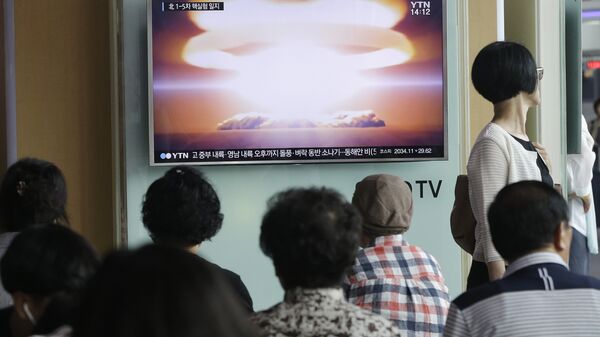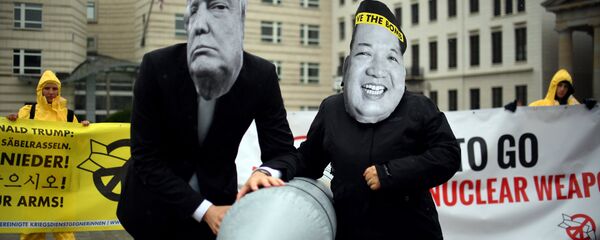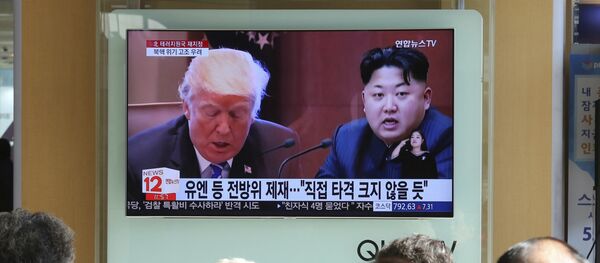At the beginning of Donald Trump's presidency, the intelligence agencies assured the president that it would take about four years for North Korea to develop a ballistic missile capable of reaching US coast, so there was time to slow or stop the development of such missiles and Washington could focus on negotiations and countermeasures, The New York Times said.
READ MORE: N Korea Reportedly Picks Delegation for Talks on Winter Olympics Participation
However, after Pyongyang conducted hydrogen bomb test and launched several missiles with one of them capable of reaching US island of Guam, the intelligence community has come to a conclusion that it has underestimated North Korea's capabilities and chances to obtain foreign technologies, including the one based on an old Soviet engine, which enabled the country to rapidly advance its nuclear program.
The CIA and other intelligence agencies have not paid due attention to North Korea's nuclear and missile tests and have been unable to foresee the North's rapid advance, which is now considered one of most significant intelligence failures, according to incumbent and former officials.
US National Security Adviser H.R. McMaster acknowledged in an interview with the newspaper that North Korean leader Kim Jong-un was quicker in a bid to turn North Korea into a nuclear power than most people believed.
READ MORE: Japan Intends to Enhance Defense Potential Amid North Korean Threat — Abe
As a result, McMaster stated, "we have to do everything we are doing with a greater degree of urgency, and we have to accelerate our own efforts to resolve the issue short of conflict."
Nevertheless, the official noted that Trump was not disturbed by the lack of warning.
"He doesn’t have the expectation of perfect intelligence about anything. He is very comfortable with ambiguity. He understands human nature and understands he will never have perfect intelligence about capabilities and intentions," McMaster was quoted as saying by the newspaper.
The latest ballistic missile test took place in late November. The missile flew 950 kilometers (590 miles) and reached an altitude of 4,475 kilometers. The flight lasted for 53 minutes, after which the missile fell into the Sea of Japan, within the Japanese exclusive economic zone. Pyongyang later announced in an official statement that this was an intercontinental ballistic missile Hwasong-15, capable of reaching targets throughout the United States.






